
Institut für Chemie und Biologie des Meeres (ICBM)
Lecturers
The issues of the summerschool are guided by scientists from the “Institute for Chemistry and Biology of the Marine Environment” (ICBM). The ICBM is a research institute at the Carl von Ossietzky University of Oldenburg and focused on coastal and shallow water research.
General |
|
| Dr. Bert Albers | Organisation, Executive Manager ICBM |
| Dr. Birte Junge | Soil Science, Coordinator of PhD Program |
| Prof. Dr. Jürgen Rullkötter | Organic Geochemistry, Group leader, Director of ICBM |
| Prof. Dr. Meinhard Simon | Microbiology, Group leader |
Sediment |
|
| Dr. Melanie Beck | Inorganic Geochemistry, Post Doc |
| Dr. Thorsten Dittmar | Marine Geochemistry, Group Leader, Max-Planck-Research-Group |
| Dr. Bert Engelen | Microbiology, Senior Scientist |
| PD Dr. Holger Freund | Geoecology; Group leader |
| Dr. Jürgen Köster | Organic Geochemistry, Senior Scientist |
| Dr. Hannelore Waska | Marine Geochemistry, Post Doc, Max-Planck-Research-Group |
| Prof. Dr. Oliver Zielinski | Marine Sensor Systems, Group leader
|
Water Column / Hydrology |
|
| Dr. Thomas Badewien | Marine Sensor Systems, Senior Scientist |
| Dr. Philipp Böning | Inorganic Geochemistry, Post Doc |
| Prof. Dr. Helmut Hillebrand | Planktology; Group leader
|
Modelling |
|
| Prof. Dr. Bernd Blasius | Mathematical Modelling, Group Leader |
| Prof. Dr. Ulrike Feudel | Theor. Physics/Complex Systems, Group leader |
| PD Dr. Jan Freund | Theor. Physics/Complex Systems, Senior Scientist |
| Dr. Cora Kohlmeier | Mathematical Modelling, Senior Scientist |
| Dr. Karsten Lettmann | Physical Oceanography, Post Doc |
| Prof. Dr. Jörg Olaf Wolff | Physical Oceanography, Group Leader |
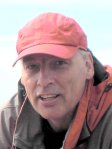
b.albers[at]icbm.de, phone: +49 +441 798 5342, www.icbm.de
Bert Albers is executive manager of the ICBM... (to be continued).
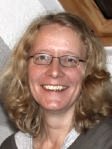
Dr. Birte Junge
birte.junge[at]icbm.de, phone: +49 +441 798 3171, www.icbm.de
Birte Junge is coordinator of the Research Training Group integrated into the SFB/TRR 51 ‘Roseobacter’ and started to work at the ICBM in July 2010. She studied biology in Oldenburg and earth sciences in Hannover and worked at the Geological Survey of Lower Saxony, Hannover. After finishing her PhD thesis on tropical soils at the University of Bonn, she was a Post Doc at the International Institute for Tropical Agriculture in Ibadan (Nigeria) with focus on soil degradation and soil conservation. Before joining ICBM, she worked on international project management including capacity building at the Bundesanstalt für Geowissenschaften und Rohstoffe, Hannover. Birte Junge’s main focus is doctoral education at the university
birte.junge[at]icbm.de, phone: +49 +441 798 3171, www.icbm.de
Birte Junge is coordinator of the Research Training Group integrated into the SFB/TRR 51 ‘Roseobacter’ and started to work at the ICBM in July 2010. She studied biology in Oldenburg and earth sciences in Hannover and worked at the Geological Survey of Lower Saxony, Hannover. After finishing her PhD thesis on tropical soils at the University of Bonn, she was a Post Doc at the International Institute for Tropical Agriculture in Ibadan (Nigeria) with focus on soil degradation and soil conservation. Before joining ICBM, she worked on international project management including capacity building at the Bundesanstalt für Geowissenschaften und Rohstoffe, Hannover. Birte Junge’s main focus is doctoral education at the university
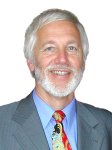
Prof. Dr. Jürgen Rullkötter
j.rullkoetter[at]icbm.de, phone: +49 +441 798 5359, www.ogc.icbm.de
Jürgen Rullkötter studied chemistry in Braunschweig and Köln. He gained 17 years of experience in petroleum exploration research and the organic geochemistry of deep-sea sediments in the Research Centre Jülich before he joined ICBM in January 1992. His present areas of interest as head of the Organic Geochemistry Group are the biogeochemistry of intertidal sediments, paleoclimate indicators in continental margin sediments, the reconstruction of paleoenvironmental conditions based on molecular fossils as well as the interactions of petroleum and environment. In the last eight years he ran the DFG Research Group on Biogeochemistry of Tidal Flats, and presently he is the director of ICBM.
j.rullkoetter[at]icbm.de, phone: +49 +441 798 5359, www.ogc.icbm.de
Jürgen Rullkötter studied chemistry in Braunschweig and Köln. He gained 17 years of experience in petroleum exploration research and the organic geochemistry of deep-sea sediments in the Research Centre Jülich before he joined ICBM in January 1992. His present areas of interest as head of the Organic Geochemistry Group are the biogeochemistry of intertidal sediments, paleoclimate indicators in continental margin sediments, the reconstruction of paleoenvironmental conditions based on molecular fossils as well as the interactions of petroleum and environment. In the last eight years he ran the DFG Research Group on Biogeochemistry of Tidal Flats, and presently he is the director of ICBM.
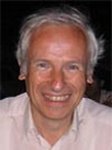
Prof. Dr. Meinhard Simon
m.simon[at]icbm.de, phone: +49 +441 798 5361, www.bgp.icbm.de
Meinhard Simon is professor at ICBM and group leader "Biology of Geological Processes - Aquatic Microbial Ecology" since 1997. He studied biology in Konstanz and Freiburg i. Br. (Germany). After receiving his doctorate from Freiburg university, he did a post-doc at Scripps Institution of Oceanography (La Jolla, USA). From 1988-1997 Meinhard was research scientist at the Limnological Institute at the University of Konstanz, where he obtained his habilitation in 1992. His main research interests are the microbiology of suspended and particle-associated bacteria, the microbial turnover of organic matter, and bacterial diversity in the oceans and shelf seas. He is at present speaker of the Collaborative Research Centre Transregio 51 "Roseobacter".
m.simon[at]icbm.de, phone: +49 +441 798 5361, www.bgp.icbm.de
Meinhard Simon is professor at ICBM and group leader "Biology of Geological Processes - Aquatic Microbial Ecology" since 1997. He studied biology in Konstanz and Freiburg i. Br. (Germany). After receiving his doctorate from Freiburg university, he did a post-doc at Scripps Institution of Oceanography (La Jolla, USA). From 1988-1997 Meinhard was research scientist at the Limnological Institute at the University of Konstanz, where he obtained his habilitation in 1992. His main research interests are the microbiology of suspended and particle-associated bacteria, the microbial turnover of organic matter, and bacterial diversity in the oceans and shelf seas. He is at present speaker of the Collaborative Research Centre Transregio 51 "Roseobacter".
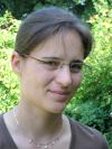 Dr. Melanie Beck
Dr. Melanie Beck
Melanie Beck is working at the ICBM since 2004. She did her PhD thesis in the frame of the Research Group „BioGeoChemistry of Tidal Flats“ on „Pore water biogeochemistry and trace metal dynamics in deep intertidal flat sediments“. Since 2007, she holds a Post Doc position and is working in different projects focusing on long-term in situ nutrient measurements at the ICBM monitoring station, trace metal and nutrient dynamics in pore waters and the open water column in the backbarrier area of Spiekeroog, and natural and anthropogenic induced dynamics of heavy metals in sediments and pore waters of the Jade Bay.
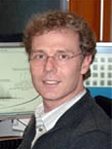 Dr. Thorsten Dittmar
Dr. Thorsten Dittmar
Thorsten Dittmar is head of the Max Planck Research Group for Marine Geochemistry, that has been established at the ICBM in Oldenburg in September 2008. He holds a diploma in Geoecology from the Univ. of Bayreuth and a PhD in Marine Chemistry from the Univ. of Bremen. Before he joined MPI, he was a Research Associate at the Alfred Wegener Institute for Polar and Marine Research, Bremerhaven (Germany), and Assistant Professor at Florida State University, Department of Oceanography, in Tallahassee (USA). Thorsten Dittmar’s main research focus is dissolved organic matter (DOM), which has persisted in the ocean for thousands of years and has accumulated to one of the largest pools of reduced carbon on earth's surface. He uses ultrahigh-resolution mass spectrometry to molecularly characterize complex organic mixtures, such as DOM, petroleum or humic substances, whose composition is still largely unknown.
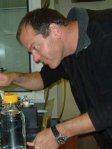 Dr. Bert Engelen
Dr. Bert Engelen
Bert Engelen is working in the Paleomicrobiology group at ICBM since 2001. He studied Biology in Braunschweig with Microbiology, Biochemistry and Wastewater treatment as main subjects. He received his doctorate from the TU Braunschweig in 1998. His PhD thesis was conducted at the “Fed. Biol. Res. Centre for Agriculture and Forestry” focusing on microbial communities in soil and their response to environmental stress. After a Post Doc position at the “Fed. Res. Centre for Biotechnology” working on the microbial community composition of the Baltic water column, he joined the ICBM and switched to sediment microbiology. Bert´s main research interest is the deep-subseafloor biosphere. At the ICBM he has also worked on various projects e.g. on the biogeochemistry of tidal flats, the microbial community composition of Mediterranean and Black Sea sapropels, the Roseobacter clade in sediments, or the viral composition of the deep biosphere. During his studies, he was involved in various field campaigns and research cruises.
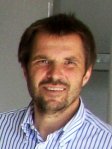 PD Dr. Holger Freund
PD Dr. Holger Freund
Holger Freund is head of the Geoecology Group and member of the ICBM since 2004. He studied Geography/Geoeocology, Geobotany and Quaternary Geology at the University of Münster and held several positions at the Geological Survey of Lower Saxony and the Universities of Hannover and Rostock. Holger Freund’s work experience lies in the field of the geology and geobotany of the coastal Holocene. Special emphasis in his work is laid on several aspects of landscape development on different spatial and temporal scales using geological and paleoecological methods.
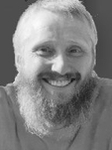 Dr. Jürgen Köster
Dr. Jürgen Köster
Jürgen Köster is organic geochemist and geologist. He is working as a scientist in the Organic Geochemistry group at ICBM since 1998. He studied Geology/Paleontology in Hannover and Freiburg i. Br., received his doctorate from Techn. Univ. of Clausthal (Germany), and was Post Doc at the NIOZ (Texel, NL). Jürgen’s work experience is in organic, petroleum, and biomarker geochemistry, and in sedimentology and petroleum geology. He worked on various projects a.o. on the biogeochemistry of tidal flats, petroleum source rocks, and bioremediation by microbial mats.
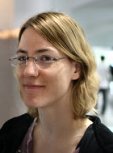 Dr. Hannelore Waska
Dr. Hannelore Waska
hwaska[at]mpi-bremen.de, phone: +49 +441 798 3349,
www.mpi-bremen.de/en/Marine_Geochemistry_Group.html
www.mpi-bremen.de/en/Marine_Geochemistry_Group.html
Hannelore Waska is a junior fellow of the Hanse Institute for Advanced Study (HWK) and works at Max Planck Research Group for Marine Geochemistry in Oldenburg. She did her PhD on radium-tracing and nutrient balances of submarine groundwater discharge (SGD) in tidal flat ecosystems. Her research interests focus on processes which govern the composition of pore water constituents under advective flow conditions, and effects of submarine groundwater discharge on coastal biogeochemistry and ecology.
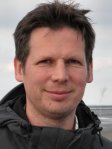 Prof. Dr. Oliver Zielinski
Prof. Dr. Oliver Zielinski
Oliver Zielinski became a professor for Marine Sensor Systems at ICBM, Univ. Oldenburg in 2011. He received his diploma and PhD at the physics department of the University of Oldenburg. Following five years in leading positions in marine sensor systems industry, he held a professorship in Sensors and Control at the Bremerhaven University of Applied Sciences (2005-2011), was head of the Marine Technology Laboratory (2006-2011), and of the Institute for Marine Resources (IMARE, Bremen, 2007-2011). Oliver Zielinski’s fields of expertise include marine environmental and biogeochemical sensors, marine optics and physics, operational oceanography as well as measurement platforms and autonomous systems. His regional focus is on (especially north-west European) coastal and shelf seas. Recent research projects focused on new sensor developments and improvements for marine environmental observables (e.g. for aquaculture applications) and/or potential hazards, such as nutrients, dissolved organic matter, hydrocarbons or harmful algal blooms.
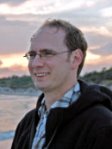 Dr. Thomas Badewien
Dr. Thomas Badewien
Thomas Badewien is physical oceanographer and joined the ICBM in 2009. He studied oceanography, physics and electrical engineering at the University of Kiel. During his time as PhD-student at the Institute for Baltic Sea Research in Warnemünde, he worked on the oxygen dynamics and measurements at time series stations in the Baltic Sea. He finished his thesis in 2002 and subsequently worked in several international projects in the Baltic area. In 2004, he came to the University of Oldenburg as Post-Doc at the Institute of Physics within the DFG-Research Group “BioGeoChemistry of Tidal Flats”. Since 2009, he has been scientifically and technically responsible for running the time series station “Spiekeroog” and has been involved in several large-scale projects and technology transfer. He teaches physical oceanography and measuring methods in oceanography and is also a scientific diver.
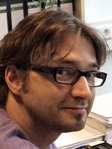 Dr. Philipp Böning
Dr. Philipp Böning
Philipp Böning received his Diploma degree in geology at the University of Jena. Since 2000 he works at the ICBM where he did his PhD thesis on trace metal geochemistry of recent Chilean and Peruvian upwelling sediments. Inbetween, he spent 5 years in France as a Post-Doc, working in paleoceanography. He is involved in different projects focusing on trace metal geochemistry of upwelling sediments, paleoceanographic reconstructions as well as metal/nutrient dynamics in the water column of the Jade Bay. He cooperates with organic-geochemists, biologists and sedimentologists to decipher the sources and sinks of metals, the biological influence on metals dynamics and how and when metals indicate productivity or preservation in marine sediments.
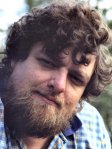 Prof. Dr. Helmut Hillebrand
Prof. Dr. Helmut Hillebrand
Helmut Hillebrand studied biology in Oldenburg and did his PhD at the Institute for Marine Science (now IfM-GEOMAR) in Kiel, studying competitive and trophic interactions in benthic communities. His PostDoc at the Limnology Department at Uppsala University, Sweden, founded his interests in ecological stoichiometry of consumer-prey interactions and in the mechanisms constraining biodiversity. Following positions in Kiel and Köln, he joined the ICBM in 2008 as the head of the Plankton Ecology lab. His current interests comprise the links between biodiversity and ecosystem processes as well as the stoichiometry of matter flow in food webs. These questions are mainly addressed in marine pelagic communities, but also in different freshwater and terrestrial ecosystems.
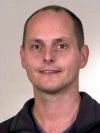 Prof. Dr. Bernd Blasius
Prof. Dr. Bernd Blasius
Diploma: TU Darmstadt (1993, Theoretical Physics); Dissertation: TU Darmstadt (1997, Physics);
Postdoctoral Minerva Fellow: Tel-Aviv University (Israel);
Leader of Junior Research Group "Theoretical Ecology and Complex Systems" at Univ. Potsdam (2001); at ICBM since 2007
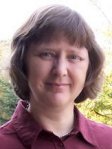 Prof. Dr. Ulrike Feudel
Prof. Dr. Ulrike Feudel
Diploma: HU-Berlin (1981, Physics); Dissertation: HU-Berlin (1986, Theor. Physics);
Postdoctorate: Univ. Maryland (College Park, USA);
Habilitation: Univ. Potsdam (1996, Theor. Physics);
Heisenberg fellow (1997-2000); at ICBM since 2000
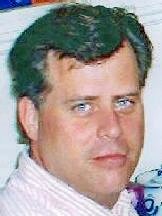 PD Dr. Jan Freund
PD Dr. Jan Freund
Jan Freund studied Physics at the RWTH Aachen and finished his PhD at the Humboldt-University Berlin in 1996. After working in the field of many particle dynamics and image analysis of genetic hybridization experiments he pursued a habilitation project in theoretical physics on “Noise-induced phase synchronization” again at the Humboldt-University. After his habilitation in 2003 he joined the Complex Systems Group headed by Ulrike Feudel at ICBM. Since then he has devoted himself to applying concepts of stochastic modeling and time series analysis, nonlinear dynamics and information theory to marine research questions, e.g. the detection of changes in planktonic communities of the southern North Sea due to shifts in the environmental conditions or effects of environmental fluctuations on the seasonal dynamics of phytoplankton-zooplankton communities.
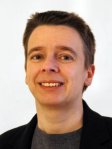 Dr. Cora Kohlmeier
Dr. Cora Kohlmeier
Cora Kohlmeier is working in the group Mathematical Modelling. She studied mathematics and physics in Oldenburg and worked from 1990-1996 in the ERSEM project (European Regional Seas Ecosystem Model) of the EU MAST program (Marine Science and Technology). After an employment as quality manager in an industrial company she joined the DFG (Deutsche Forschungsgemeinschaft) research group BioGeoChemistry of the Wadden Sea in 2001. She developed a complex ecosystem model for the Wadden Sea and received her doctorate in 2004 at the ICBM. Her research interests focus on conceptual ecological models and budgeting of nutrient dynamics with complex ecosystem models. Further interests are the implementation and quality control of complex models and teaching.
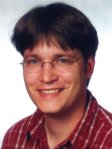 Dr. Karsten Lettmann
Dr. Karsten Lettmann
Karsten Lettmann studied physics, mathematics and medicine at the Universities of Marburg, Magdeburg and Bremen. He finished his PhD in 2005 at the Alfred Wegener Institute in Bremerhaven, where he investigated the wind-driven circulation of the Antarctic Circumpolar Current with ocean circulation models. In 2005, he joined the Mathematical Modelling Group at the Max Planck Institute for Marine Microbiology in Bremen, and studied the diagenesis of chemical nutrients and isotopes in marine sediments with numerical models. Finally, in 2007, he became a member of the DFG-Research Group “BioGeoChemistry of Tidal Flats” at the ICBM to model the sediment dynamics in the East-Frisian Wadden Sea. He teaches physical oceanography and climate modelling. Karsten Lettmann is married and has one daughter.
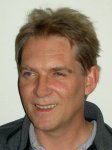 Prof. Dr. Jörg-Olaf Wolff
Prof. Dr. Jörg-Olaf Wolff
Jörg-Olaf Wolff studied physical oceanography, meteorology and geophysics in Hamburg and received his diploma in physical oceanography in 1986. Until 1992 he worked in the “Climate dynamics group” at the Max-Planck-Institute for Meteorology in Hamburg for the German Science Foundation (DFG) Special Research Initiative 318 “Climate relevant processes in the system ocean-atmosphere-cryosphere”. From 1993 until 1999 he was appointed as senior research scientist at the Antarctic Cooperative Research Center at the University of Tasmania in Hobart, Australia. Since 1999 he is Professor for Physical Oceanography (Theory) at the University of Oldenburg. His research interests cover eddy-resolving ocean models, geophysical turbulence, computational fluid dynamics, dynamics and thermodynamics of the Southern Ocean, hydro- and sediment dynamics of wadden seas. Since 2001 he is the chief-editor of Ocean Dynamics.
